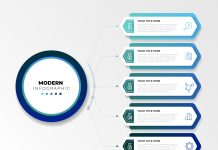In the digital-first B2B landscape, data is crucial for decision-making, customer experience, and competitive advantage. As technology evolves, businesses must adapt their data collection, storage, and utilization methods. In 2025 and beyond, B2B data management is expected to undergo significant changes.
Below, we explore the most impactful trends shaping the future of B2B data management.
1. Blockchain for Data Integrity and Transparency
Blockchain is making waves beyond cryptocurrency, and it’s set to revolutionize B2B data management. By enabling secure, immutable, and transparent data transactions, blockchain ensures trust between partners in complex B2B ecosystems.
Benefits for B2B:
- Ensures data accuracy across supply chains
- Enhances compliance with audit trails
- Reduces data manipulation or loss
As data authenticity becomes critical, especially in sectors like finance and logistics, blockchain adoption in B2B data workflows will increase.
2. Real-Time Data Processing for Instant Decision-Making
B2B firms can no longer rely solely on historical data or batch processing. The demand for real-time insights is growing rapidly, especially in industries where split-second decisions can impact revenue and operations.
Use Cases:
- Dynamic pricing models based on current market conditions
- Real-time customer behavior tracking
- Supply chain optimization and anomaly detection
With tools like Apache Kafka, Spark, and cloud-native analytics, businesses are moving toward real-time data architectures to gain a competitive edge.
3. Big Data and Predictive Analytics for Strategic Growth
Big data continues to be a major driver of innovation in the B2B space. Organizations are leveraging vast datasets from CRMs, ERPs, marketing automation tools, and IoT devices to extract actionable insights.
Key Focus Areas:
- Customer segmentation and personalization
- Sales forecasting and demand prediction
- Risk analysis and fraud detection
Predictive analytics powered by machine learning is enabling businesses to plan proactively rather than reactively, unlocking new growth opportunities.
4. AI-Powered Data Governance and Automation
Manual data governance is no longer scalable. AI and machine learning tools are now central to automating data classification, anomaly detection, and compliance enforcement.
Emerging Benefits:
- Automated data tagging and quality checks
- Real-time alerts for data breaches or policy violations
- Streamlined data cataloging for easy access and use
Expect to see more AI-integrated data governance platforms in B2B environments, especially those dealing with sensitive data and strict regulations.
5. Privacy and Compliance-Driven Innovation
With increasing data privacy regulations like GDPR, CCPA, and others emerging globally, B2B companies must design data systems with compliance baked in.
Trends to Watch:
- Shift toward zero-trust architectures
- Enhanced consent and permission management tools
- Growth of privacy-centric data platforms
Privacy compliance is no longer a checkbox—it’s a key pillar of trust in B2B partnerships.
Conclusion
The future of B2B data management lies in embracing smarter, faster, and more secure technologies. From blockchain and real-time analytics to predictive modeling and AI-driven governance, these trends will redefine how businesses operate in 2025 and beyond.
B2B companies that proactively adopt these innovations will be better positioned to meet evolving customer demands, stay ahead of competitors, and thrive in an increasingly data-centric world.
I hope you find the above content helpful. For more such informative content, please visit Techedgedemand.









